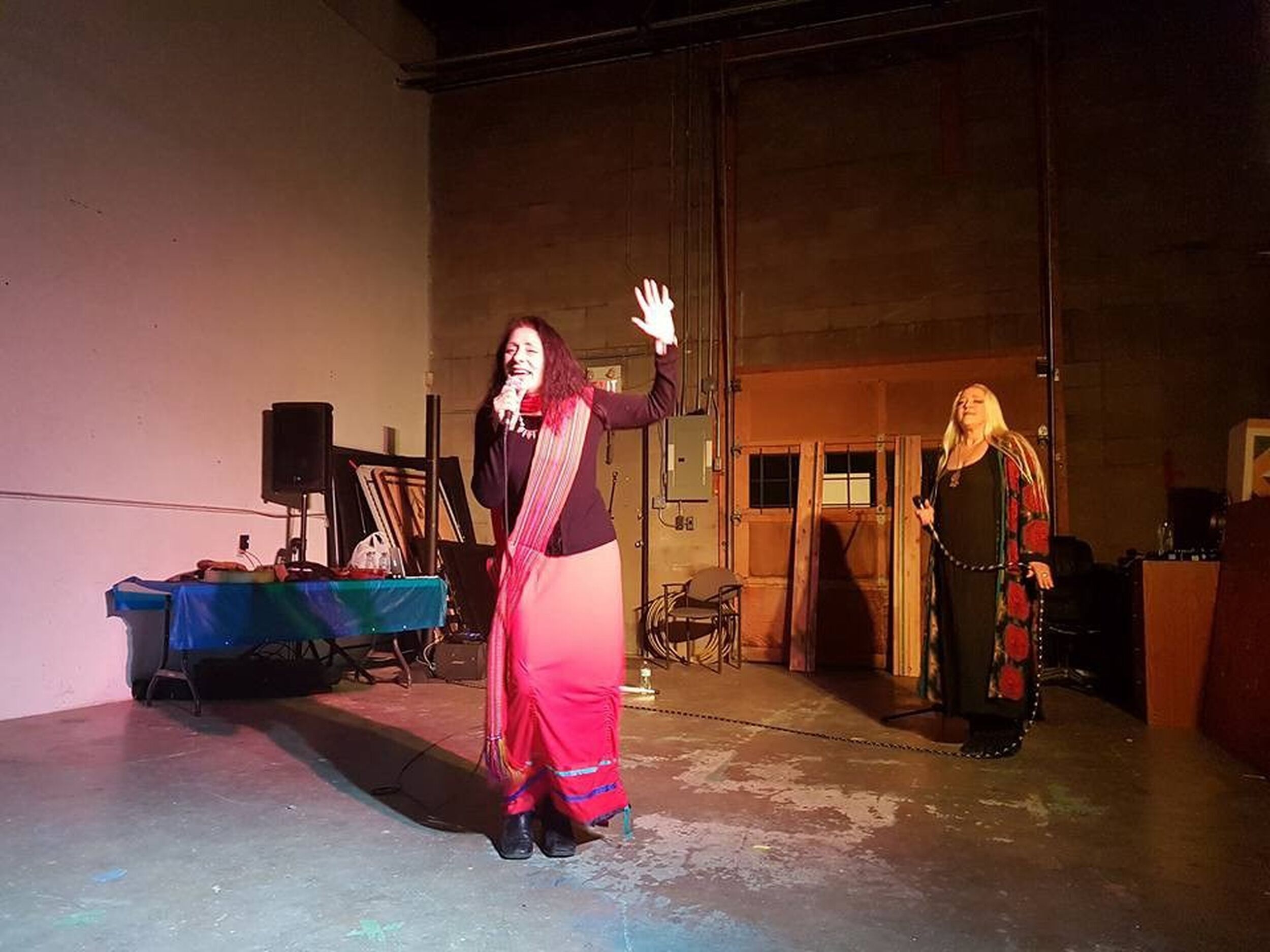
History of exclusion: a 2026 Calgary Olympics ‘has to be different’
Indigenous inclusion is a must.
For the past century, nearly every one of the world’s Olympic Games has had celebration and triumph on one hand, with embarrassment and exploitation on the other.
Rarely are the heavy human costs of these mega-events highlighted in the official ledgers of host cities.
Historically, Indigenous people have not fared well as a result of cities hosting the Olympics.
“The First Nations and the Métis believe the 1988 Olympics did not leave a legacy for Indigenous Peoples,” states Calgary’s bid exploration committee report, which was based, in part, on interviews with Treaty 7 First Nations and Métis.
Chief Lee Crowchild of the Tsuut’ina says the Nation is open to Calgary bidding on the 2026 Games, but adds that any future Games will need to be more cooperative.
“It has to be different than the 1988 Olympics,” said Crowchild.
‘Be respectful of the people’
Jenny Philbrick, a member of the Chilcotin and Secwepemc Nations who works at the Iniskim Centre at Mount Royal University, feels a 2026 bid would be positive — so long as Indigenous people are included from the get-go.
“Be respectful of the people, the traditions and the protocols,” said Philbrick.
“[Organizers] should consult the right people. Because there wasn’t much of that in the 1988 Olympics. Just making sure that conversation is there instead of just having assumptions.”
Another Calgary Games could also bring reconciliation to the fore in a way it wasn’t in ’88.
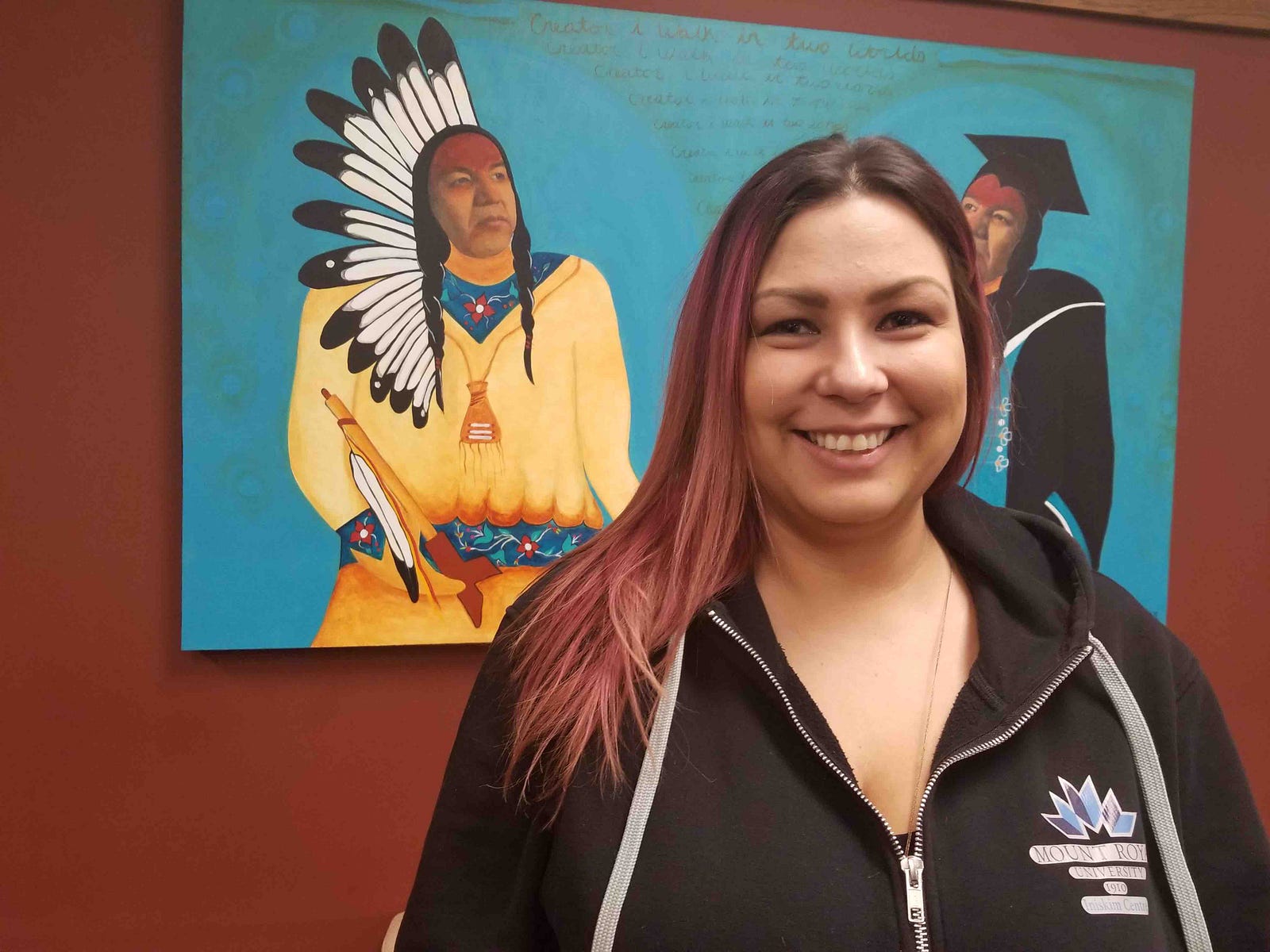
“I hope they have a lot more recognition of the land and maybe promote that we’re all treaty people,” said Philbrick. “It’s not just the Indigenous people who signed the treaty. It was the non-Indigenous people. So everyone who’s on this land is, essentially, a treaty person.”
An Olympic call to action
Canada has slowly begun repairing the damage and marginalization caused by its colonial national policy. The recent Truth and Reconciliation calls to action are a significant step in that process, and they specifically refer to the Olympics.
They call on organizers to respect territorial protocols and engage local Indigenous communities “in all aspects of planning and participating in” international sporting events, including the Games.
Crowchild echoes the need for respect and involvement.
“If the City of Calgary is interested in pursuing that, we’ll make it known that protocol needs to be followed.”
Calgary’s 17-member exploration bid committee included Wilton Littlechild, a Cree lawyer and former MP. Meanwhile the conversation between the city and the Tsuut’ina Nation has already begun, though it’s still in early stages.
“We had an initial engagement with the City of Calgary on their exploration team,” said Crowchild. “I think after this Korea Olympics, we’ll probably talk a lot more.”
Learning from Vancouver’s mistakes
Calgary’s bid committee cited the framework of the Vancouver 2010 Games as a model for Indigenous inclusion should the city move forward with a bid.
Vancouver organizers integrated Indigenous art into Olympic merchandise. A chunk of the profits went to the Aboriginal Youth Sport Legacy Fund to support Indigenous athletes and sport programs.
But many local First Nations members were critical, arguing that it suggested cultural appropriation is fine, so long as a paycheque is attached.
Further complications arose when it was uncovered that Vancouver organizers hadn’t approached all the local Nations for involvement in the Games early on.
It took direct action by the Squamish and Lil’wat Nation leaders to be included. The committee then failed to include the other two Nations, Musqueam and Tsleil-Waututh. It took nearly five years of negotiations for all four host Nations to be included.
What Calgary got right in ‘88
The very idea of the Olympics generates discord.
But in 1988, Calgary won over many of the critics. It broke the mold for Olympic Games by involving regular people at all junctures. Driven by volunteers, it became the people’s Games, not just a place for the well-heeled to attend.
Harry Hiller, a University of Calgary sociologist who has studied the Olympics extensively, has written that the Calgary Games were “successful from the viewpoint of urban residents because the event was transformed from an elitist athletic event to an urban festival.”
The Calgary “down-home” attitude had lasting effects on how the world perceived the city.
The city has changed a lot since 1988, and not just in size. Calgary is less provincial and more international. More than one in four Calgarians are immigrants.
Saima Jamal, a Calgary activist and co-founder of the Calgary Immigrant Support Society (formerly the Syrian Refugee Support Group), says a Calgary 2026 Games would be an opportunity to show the world what can happen when you welcome immigrants and refugees.
She’s strongly in favour of a Calgary 2026 Olympics.
“It’s no longer just a monocultural city anymore,” says Jamal. “Our cultural makeup is so much more multicultural.”
“We have so much more to celebrate now than we did in 1988.”
— Calgary activist Saima Jamal
Another Calgary Games could be a chance to build bridges between different communities in Calgary — something that’s already been happening thanks to the Olympics.
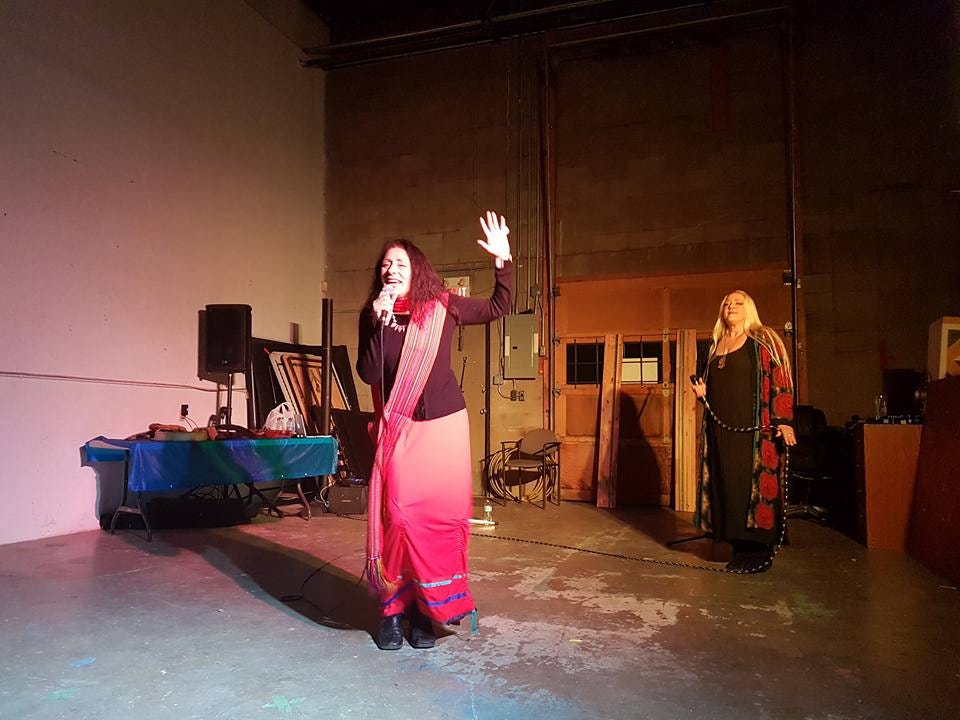
Local Métis singer Wendy Walker and Dawn von Arnim, who perform in a duo called Reconciliation, practiced at the Calgary Immigrant Support Society’s warehouse prior to leaving to perform at the Games in PyeongChang.
Alexander First Nation hoop dancer Dallas Arcand Jr., who is also performing at PyeongChang, also practiced there.
Before they left for South Korea, the trio held a pre-Olympic performance as a thank you to the community for the use of the warehouse, which is a hub for newcomers. “Even refugees came because they know what Olympics are,” said Jamal. “That’s one thing that was in every country in the world.”
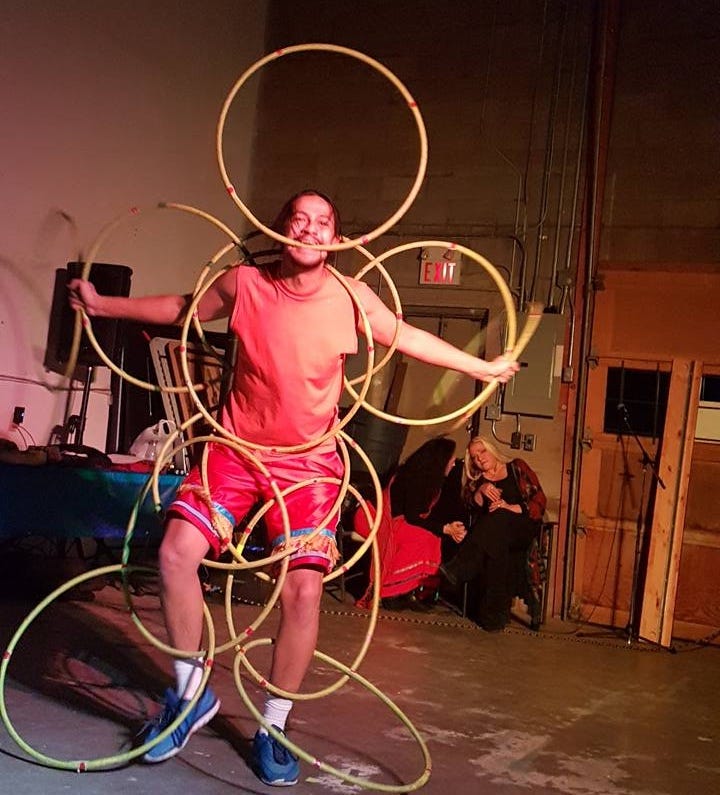
Jamal says the excitement in the room was palpable. “That these people are going to the Olympics, it means we have this connection. The newcomers felt it so much, and the Indigenous community felt it so much.”
For Jamal, that excitement spills into the dream of a Calgary 2026 Olympics.
“For the newcomers that are here, just the idea of the Olympics coming — it’s the most amazing, exciting thing you can possibly think of,” she said.
Out of sight, out of mind
Another issue at previous Olympics has been the treatment of homeless people in host cities.
“Homeless populations are displaced as these events come in,” said longtime Calgary activist Grant Neufeld, who performed as a square dancer in Calgary’s 1988 opening ceremonies.
“Sometimes they’re jailed, sometimes they’re forced out of the city, sometimes they’re otherwise rounded up and moved into other areas. And that’s not acceptable.”
Before the 1988 Seoul Olympics, thousands of people — ranging from youth to the homeless — were forced to work in government slave labour camps for the creation of Games infrastructure.
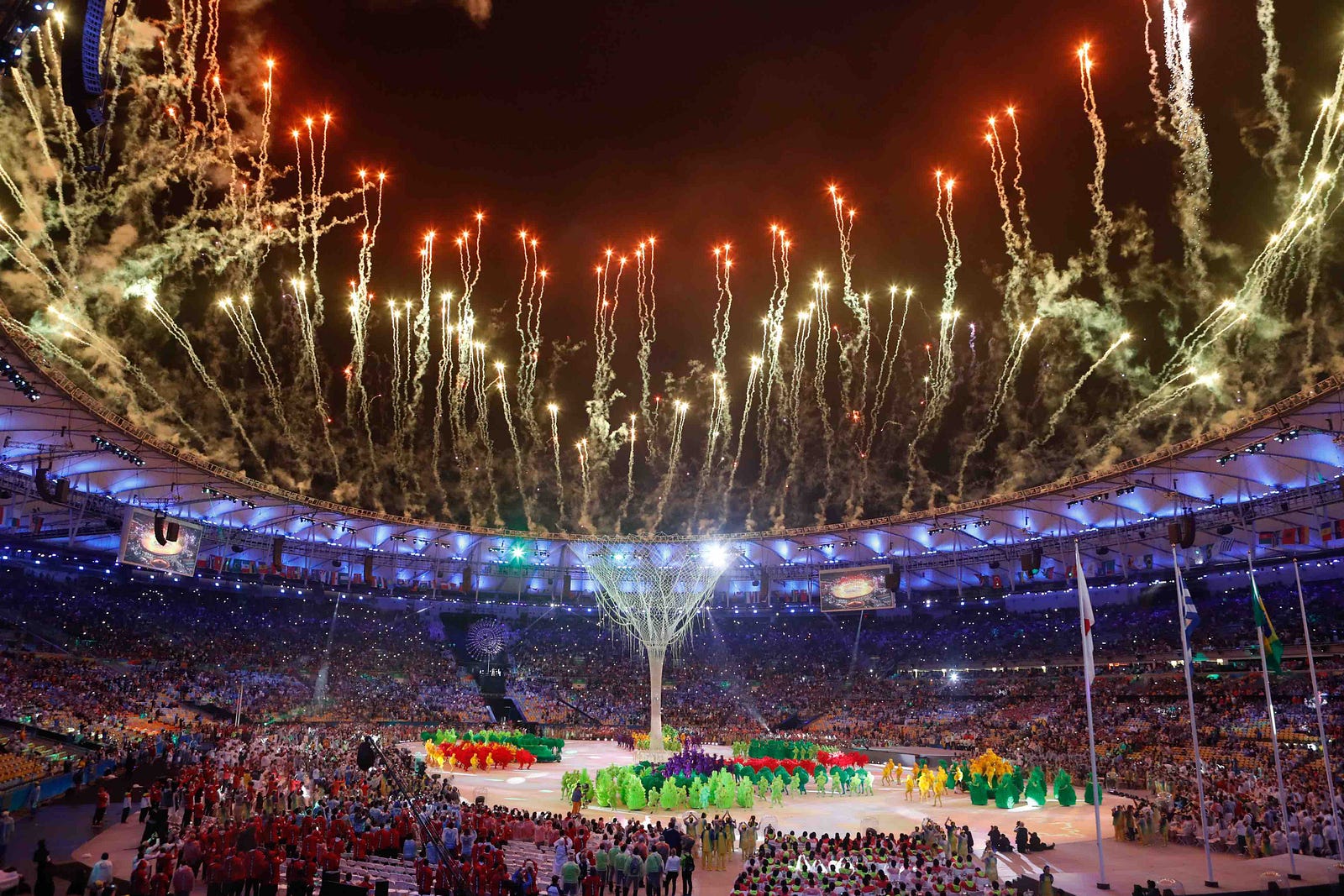
In Rio de Janeiro, preparations for the 2016 summer games were marked by violence and indifference to the poor. The Brazil government built a wall surrounding the local favelas to hide them from the eyes of the world. In some cases, the ghettoes the government couldn’t wall off were completely razed — and those who refused to leave were imprisoned and/or killed.
Closer to home, in 2010 during the Vancouver Olympics, homeless youth were displaced before and during the Games. Out of sight, out of mind.
Protesters organized a “poverty Olympics” prior to the opening ceremonies where homeless individuals marched downtown to visually show there would be more homeless than athletes present for the Vancouver Games.
Calgary would likely face some similar challenges to Vancouver. Calgary has already fallen short of its 2018 deadline to end homelessness. Almost 3,200 people reported being homeless in Calgary in 2016, or about 1 in 406 Calgarians.
Shayne Williams, executive director of the Lookout Housing and Health Society in Vancouver, recalls that Games organizers met with service providers a year before the Olympics.
“A lot of service providers at the table, and myself included, talked about the need to include vulnerable people,” Williams said. Questions were raised about how low-income people could attend Olympic events.
In the end, the Vancouver committee gave away tickets to social agencies for their clients. Williams says that while there were challenges that came with the Games, on balance the Olympics were positive.
“Any international event of that magnitude, in any city, I think you’re going to have some repercussions,” said Williams. “I think overall the Olympics were a good thing for the region and for the people of the region.”
Antoine Fecteau, Badria Abubaker, Curtis Larson, Olivia Baychu and Jeremy Klaszus
This story is part of Hindsight 2026, a joint project between the Sprawl and the Calgary Journal (which is produced by journalism students at Mount Royal University). We’re digging into past Olympics to evaluate whether a 2026 Winter Games in Calgary would help or hinder our city.
Support independent Calgary journalism!
Sign Me Up!The Sprawl connects Calgarians with their city through in-depth, curiosity-driven journalism. But we can't do it alone. If you value our work, support The Sprawl so we can keep digging into municipal issues in Calgary!




